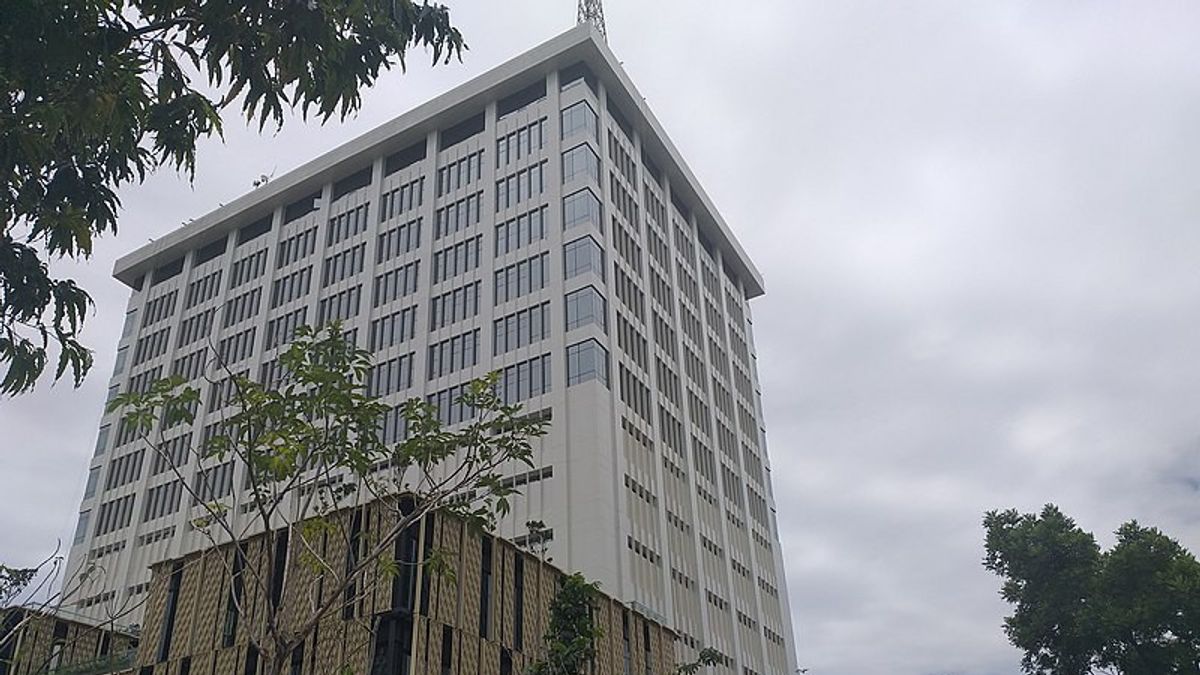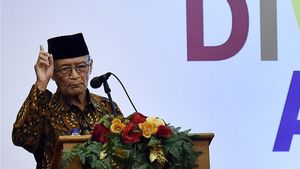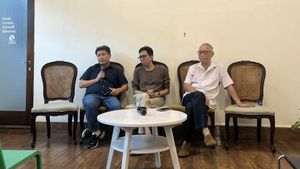JAKARTA - Soekarno never hesitated to learn from anyone. Including the caregiver. Sarinah, her name. The female figure is like the pillar of the struggle. Bung Karno learned many things from him. From mutual cooperation to defending commoners. His enthusiasm carried over until Soekarno became President of Indonesia. Sarinah was immortalized as the name of the first modern shopping center in Southeast Asia. The department store was forever known as the Sarinah Building.
For Bung Karno, every breath of life is a lesson. Learning new things doesn't have to be indiscriminate. Especially looking at the status. Because, a knowledge can be obtained from anywhere. Bung Karno also experienced it when he was young. Learning is not only obtained in European schools. Knowledge can be obtained from home. In fact, from a caregiver named Sarinah.
Sarinah's figure played an important role in Bung Karno's growth and development. Sarinah dedicates time to taking care of her family, especially Bung Karno. This selfless love made Bung Karno recognize a unique principle of the Indonesian people: gotong royong.

This devotion made Sarinah sleep, live, and eat with Bung Karno's family. Sarinah is like a family member. He didn't receive a penny either. Togetherness that made Sarinah in her spare time taught Bung Karno many things. Love, especially. In that corridor, Bung Karno was taught to be a lover.
Bung Karno was asked to love many things. Especially loved the commoners. His understanding also increased. The injustice received by the common people sharpened their sensitivity. As a result, Soekarno grew and moved to fight for the fate of his nation. Imprisonment and exile did not deter him, until Indonesia achieved its independence.
“He is the one who taught me to know love. I don't mention his physical meaning when I say that. Sarinah taught me to love the people. The masses of the people, the common people. While he was cooking in a small hut near his house, I sat beside him and then he made a speech: Karno, above all you must love your mother. But then you have to love the common people too. You have to love people in general.”

“Sarinah is a common name. However, this Sarinah was no ordinary woman. He is the single greatest power in my life. In my youth I slept with him. I don't mean husband and wife. We both slept in the small bed. When I grew up, Sarinah was gone," explained Bung Karno, as written by Cindy Adams in Bung Karno's book: Connecting the Tongue of the Indonesian People (1965).
Immortalized as the name of the buildingThe valuable lessons from Sarinah continued to be used as guidelines for life by Bung Karno. His actions in defending the common people began to be seen since he was studying in Bandung. He actively defended his people from pulpit to pulpit. His voice was loud against the Dutch. He wanted Indonesia to be free from the shackles of colonialism. His political activities also had consequences. Imprisonment and exile as a weapon for the Dutch weakened Bung Besar's steps.
However, Bung Karno was reluctant to surrender. He still defended and stood with the common people. The struggle was finally paid off. The role of all freedom fighters made Soekarno and Mohammad Hatta the nation's leaders.
They were asked to declare independence. Even so, his sensitivity to the little people never goes out. He continues to pump the spirit of the people. He also guarded national pride. One solution is a lighthouse project. The project will make Indonesia's image as a great nation even brighter.

Bung Karno also realized Indonesia's dream of having the first modern shopping center in Southeast Asia. Sarinah, her name. Its construction was carried out in 1962. Sarinah was built to build a socialist economy. Not capitalist. Therefore, he considered Sarinah's role as a price stabilizer. Even the products or goods sold there must predominantly come from within the country. At least 60 percent of the amount.
"Lo, I used to lay the first stone of the Sarinah Department Store. I already said, Sarinah's Department Store is an absolute necessity for the socialistische economie. There is not a socialist country that does not have a legal distribution, does not have a department store. Come in Hanoi, there. Come in Peking, there. Come in Nanking, there. Come in Shanghai, there. Come in Moscow, there. Come in Budapest, there. Come to Prague, there is.”
“Because the function of the department store is number one, lowering prices, reducing prices, stabilizing prices. That is, people outside this department store do not dare to sell goods higher than the department store. Because, in department stores the price is only 50 rupiahs, outside department stores people don't dare to sell this item for 100 rupiahs," Soekarno said in his address at the Plenary Session of the Dwikora Cabinet in Bogor, January 15, 1966, quoted in the book Revolution Unfinished (2014).
The English, Chinese, Japanese, Arabic, and French versions are automatically generated by the AI. So there may still be inaccuracies in translating, please always see Indonesian as our main language. (system supported by DigitalSiber.id)









